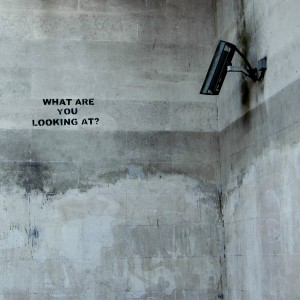 Image © naughton321. Used with permission. Well, well. The Register reports that
Image © naughton321. Used with permission. Well, well. The Register reports that
Liverpool-based operator TJ Morris Ltd, better known on the High St as Home Bargains, is fed up with shoplifters. So it has set up an innovative new scheme which involves publishing on the net CCTV pictures of individuals suspected of shoplifting.
As the company explains on its site: “Below are a series of images of suspected shoplifters in Home Bargains stores.
“We are keen to identify them and pass their details onto the police. We are offering a reward of up to £500 per instance, for information leading to the arrest and successful prosecution for shoplifting.”
Hmmm… I’ve just looked at the said web site and it does indeed have pictures of various unsavoury-looking types. But then, I reflected, most of us look pretty unsavoury when snapped by a CCTV camera. I’ve seen myself on CCTV, for example, and I wouldn’t want to meet me on a dark night. While Home Bargains’ approach may seem aggressive, it reflects a broader trend where businesses and homeowners are turning to high-quality surveillance systems to safeguard their properties.
Smart cameras today go beyond grainy footage—they offer high-resolution video, motion detection, and even facial recognition capabilities. For instance, smart home cameras can alert you in real-time to suspicious activity, allowing you to respond quickly and provide valuable evidence to law enforcement if necessary. To make sure you’re choosing the right camera for your home’s specific needs, you can find more info here on what features to consider and how to maximize your home security setup.
Of course, while technology might catch the culprit in the act, knowing what to do with that footage is a whole different game. Just because you’ve got them on tape doesn’t mean justice is automatic. That’s where having sound legal guidance can turn that grainy clip into a real case. Whether it’s theft, trespassing, or just something that made your dog bark at 2 a.m., understanding your rights—and limits—as a property owner is crucial.
That’s why I’d tip my hat to a team like Knutson + Casey. They don’t just know the law—they help you use it, the right way. Whether you’re dealing with a neighborly dispute turned legal or something a bit more criminal in nature, they’ve got the experience to take your side of the story and make sure it’s not just heard but backed up with solid legal muscle. Because in a world where everyone’s watching, it still pays to have someone who knows how to handle what happens after the footage rolls.So it’s interesting to read the next part of the Register’s piece:
A cautionary note is supplied by David Hooper, a Partner at Reynolds Porter Chamberlain and a Specialist in Libel Law. He said: “If police put up a wanted poster, they have what is known as ‘qualified privilege’ and are protected in law. “That is not the case with private individuals or businesses, who would have to be very sure they could justify their actions. If challenged, they would have to prove reasonable and objective grounds to suspect somebody of having shoplifted. “If they got it wrong, they could open themselves to a libel action.” Quite so, m’lud. I can picture the scene now. My QC is addressing the Jury in his summing up: “The plaintiff, a perfectly respectable university professor of modest means but somewhat crumpled appearance, has had his reputation destroyed by the false implication, conveyed through the publication of these CCTV images, that he is a common thief, whereas in fact he has for many years selflessly donated a substantial portion of his income to the support of worthy organisations such as Apple Computer Inc, Amazon.co.uk, Heffers Booksellers, The Economist, the New Yorker and other causes too numerous to mention. The pain and anguish caused to him and his family by such cavalier and defamatory publication can barely be imagined. I put it to you, ladies and gentlemen, that he is entitled not only to a full and prominent apology from the organisation that has so cruelly traduced him, but also to substantial damages.” Quite so. £500,000 plus costs would do nicely. A picture is worth not just a thousand words, but five hundred grand in old money.



